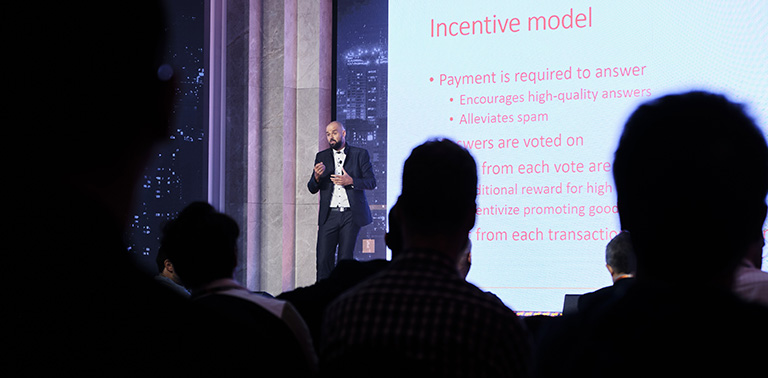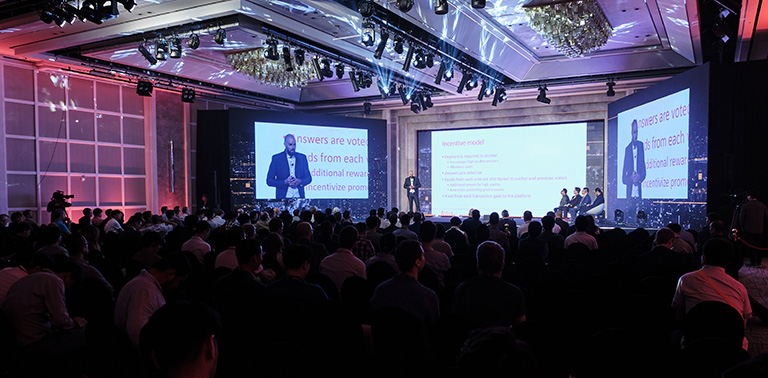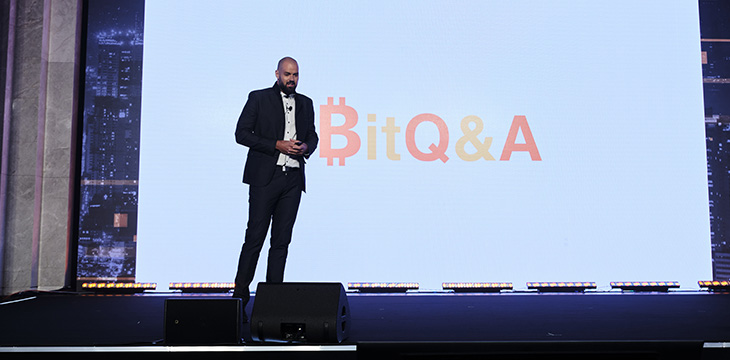|
Getting your Trinity Audio player ready...
|
BitQ&A is like Quora or StackOverflow, but good answers receive BSV instead of just votes. It seems like a perfect use-case for Bitcoin where micropayments are possible, and that’s probably why BitQ&A was one of the three finalists in the Bitcoin Association Hackathon, presenting at the Seoul CoinGeek conference. How have things been going since then? Read on to find out.
BitQ&A works like this: Users post questions they need answered, which costs $0.10, along with an offer for an additional “bounty” in Bitcoin for the best answer. Other users submit answers and/or upvotes, for which they also pay $0.10 in BSV (via MoneyButton).

While the original questioner sets the bounty value, other users can pool more into the total if they feel it’s a valuable question, or if they’d also like to know the answer.
Voting on an answer costs $0.10. Two-thirds of that go to the original poster and the remaining third is shared equally among those who voted beforehand. This also acts as an incentive to contribute by voting.
Once the original poster feels the question is answered satisfactorily, they choose the answer they like best (which in most cases is the one with the most votes) and that user receives the bounty pool. If there’s no satisfactory answer, the question stays open and bounty unclaimed until someone provides one.
To support itself, BitQ&A takes 10% of any transaction. At the time of writing, the highest bounty payout has been 30,000 bits (~$3 at the time of payout) and the highest current open bounty had topped 45,000 bits (~$6). Those rewards are small, but would naturally increase as user adoption grows.

One-Man project (for now)
BitQ&A in its current form has a basic but functional design, and all the questions concern BSV development. That’s probably not surprising given it’s only a few months old, and is developed solely by Janez Urevc, in Slovenia.
Urevc told CoinGeek his goal is to continue developing the BitQ&A site itself, and possibly others with similar functionality, full-time. At the moment he’s making improvements in his spare time outside his regular day job, which makes improving the site “slower than I’d like.”
Since Seoul, Urevc has started work on improvements like the ability to edit questions and answers after posting, and overhauling the front-end design (he admitted he’s not a design person).
That said, BitQ&A looks pretty good for a solo project born from a hackathon. While the design is basic, it isn’t ugly, and all the features we tested worked well. Urevc is working on a design overhaul along with the other improvements, and plans to release a new version by the end of 2019. Design, he said, is something he’d most like to improve if resources were available.
Urevc added that he’s in discussions with people who approached him at CoinGeek Seoul following his finalists’ presentation. They include potential investors and organizations interested in using the product.
Notably, BitQ&A doesn’t require users to register an account with the site or provide any contact information, which means users need to manually check the site to see if their question has been answered.
Urevc said one concern is that posters might forget or abandon their questions, leaving them open as the bounty pool grows and depriving the best answerer of their prize.
The biggest problem that I noticed so far is not that answers would be unsatisfactory but rather askers failing to accept the answers. This results in questions with good answers that stay open. I am thinking about adding a time component to the system that would automatically pay the bounty to the answer with the most votes if there are no new answers added for some period of time.
Notifications would also help remind users to interact with the site, he said, meaning he might have to ask for email addresses at least. In the early stages, he wanted to collect as little personal information as possible.

Bitcoin/micropayment model has plenty of room to grow
Q&A-focused sites like Quora, StackOverflow and the more-lowbrow Yahoo! Answers have proven extremely popular over the years, yet the users providing the actual content get none of the rewards. With Bitcoin and micropayments, there’s plenty of opportunity to expand the concept into broader topics and create a whole new economic sector.
“While having a general knowledge site like Quora is definitely a long-term vision it will be very hard to get there in the short term. I think that it will be smarter and easier to drive adoption for a few smaller niche sites and grow from there. The first such site is the current BitQ&A, which is focused towards the BSV community, but I don’t want to stop there. Plan is to grow from here towards other (unrelated to Bitcoin) communities and try to grow adoption through them,” Urevc said.

 03-04-2026
03-04-2026 




